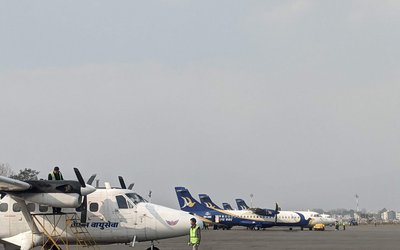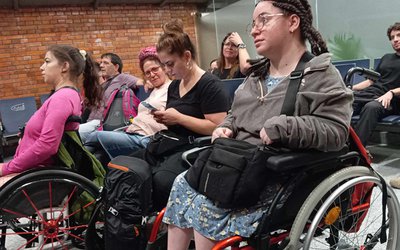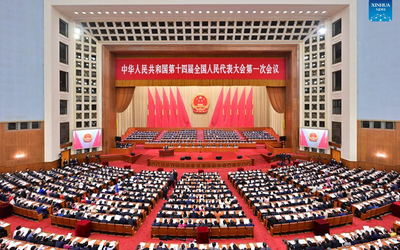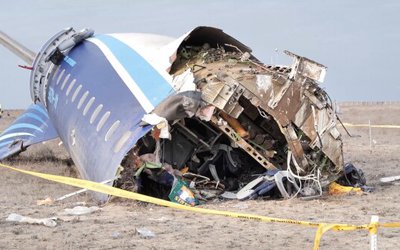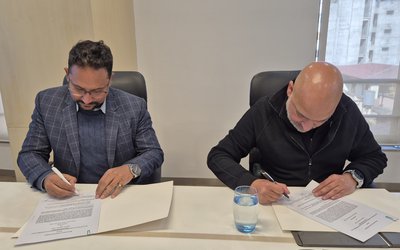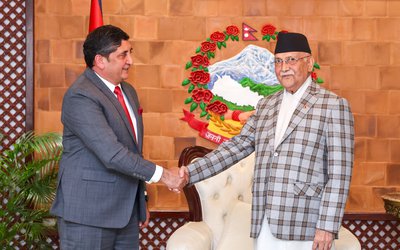It would be unwise for me to try and summarize a country like Nepal in a single article; moreover, being a foreigner as I am, it would simply be an audacy. I spent five months in Kathmandu, five months during which all I could was try and grab first hand a few snippets of a country with endless traditions, tastes and cultures.
As I said, being unable to summarize all I saw and felt in that country in a few words, I shall try and describe it in a more sensory, tasty manner, taking a Litchi as a metaphor. This fruit, which in principle can be enjoyed just eating it, has the quality of awakening other senses; still missing other aspects, this is, in a certain manner, what happened to me in Nepal.
I go acquainted with Litchi by mistake. I remember it was during my first days in Nepal; I was still getting confused in the streets of Thamel. Being thirsty, I entered one of the supermarkets in the district and went straight to cold drinks. I caught one of the bricks of what I thought was strawberry milkshake, paid and left. Once in the street, I proceeded to quench my thirst. As the juice went into my mouth and began to flow through my throat, a feeling of surprise invaded me: "these are not strawberries!" No, indeed, they were not. But it was different, delicious, unforgettable.
In a similar manner, I travelled to Nepal almost by accident. In a first instance, I was intending to attend one of the most prestigious post-grade course of my country. Fortunately enough, my application did not get through and I had to think of something else. Without work or any future project at sight, I opted for volunteering during a few months in some distant country’s newspaper. I looked around, asked different people, talked to friends, colleagues and peers who might give me some guidance in what would be my destiny. In the end, as usual, Internet gave me the answer; I saw some offer for international journalism in Nepal. – “Nepal”? – “Why not!"
Like the expected strawberries were not such but Litchis, I landed in Nepal thinking that I was arriving into another part of the world. The pre-conceived idea I had from Nepal was largely due to Hollywood’s approach, and more specifically to a movie called “Golden Boy” (El Chico de Oro, in Spanish), with Eddie Murphy starring in it. The image this film was giving from Kathmandu was that of a medieval city where cars were yaks, full of snow and dust, sherpas and Buddhist monks. Hollywood always had the capacity of interpreting the world its own way.
Obviously, my lack of awareness was comparable to the incompetence of such a script: total ignorance was reigning. Again, everything was completely new to me, I was certainly not ready for all I was encountering at every step. The vortex of traffic and people, trucks and bikes flooding Ring Road, the amount of plastic trash piling up in the streets (often flaming), the lack of electricity or water shortenings in the most popular and populous districts of the capital....
Nepal strongly impacted me, like the new flavour did when it invaded my throat. In a certain manner, I now am grateful for this lack of information, as it allowed me the freedom and perfect mental state for absorbing new data: ignorance on which to build a solid diagnosis. I had to expand all my senses and antennae in order to explore and perceive the nuances of that new world. The smells of incense, flowers, spices, food, stagnant water, cows, people, all mingled with the sounds of thousands of horns of the vehicles and the movement of crowds filling the narrow, rambling streets, with a stupa poke here or a Hindu temple there. The red brick and brown soil marrying the blue sky, all mixed with little sparks of colour, everywhere, caused by the saris of women.
But the shock was not limited to an exotic experience for me so far. In addition to thousands of colors and smells, I saw poverty as never before. I saw children lying in the street, sniffing glue and begging with feet as black as coal. I saw an overcrowded and unsustainable city where most of its inhabitants are poor and crammed into houses without electricity or water while rich people... live well, but are not “so rich”. Too many people, too many bikes, too much pollution, dust, police and little light, few roads, little respect for laws by citizens and little desire to enforce them by the rulers.
However, Nepal does not end up there, not at all. Apart from litchys and Kathmandu, there are two natural environments (among others), quite the opposite the one from the other: the valley of Nepal Terai and the Himalayas for example. The extreme beauty of these ecosystems is incomparable and offers a very attractive contrast for tourism. Nepal tourist year 2011 is indeed a great initiative for the country and this project should go on beyond 2011. Tourism generates a huge amount of revenue with a minimum production cost. Therefore, the quality standards should not be based on a productive sense but on a long term approach. The creation of the Himalayas did not cost a penny to Nepal; however, a wild, unplanned tourist exploitation of it, based on monetary gain only can destroy a unique natural environment in this world and a great source of revenue for the future.
No doubt Nepal is a very interesting tourist destination, but there is a factor that substantially reduces the flow of tourism to the country: political instability. Proper tools are required to clean Nepal’s “front yard”. The instability generated by the political situation deters many tourists who prefer to travel to other countries, such as Canada, at the time it prevents tourists already in the country from spending in shops and restaurants. While I was there, a partial strike was on for 7 days. This greatly discourages incomers and reduces consumption.
While speaking of tools, I am referring to one in particular, the political element ruling a country, the Constitution. This major element is not only a partial benefit like tourism, but it represents the quality of life for Nepal citizens, guaranteeing fundamental rights. National dignity in physical form. No space for partisanship nor impositions when writing such a law. A constitution needs, by its own nature, to be agreed by the vast majority of inhabitants. The constitution is the law of laws and if Nepal seeks to make the step towards real modern democracy, it will need to internalize the basic principles of the first one: democracy is the dictatorship of the majority. I am talking from the experience of the Spanish case, when, after more than 40 years of military dictatorship, the country had to join forces and face the future. A Constitution was written for all Spaniards; all political parties had to make concessions to give the nation a bill of rights for everyone.
Apart from –or, better said, in addition to- this Law of Laws, major projects also need to be moved forward. Powercuts and current water shortages are the most flagrant examples of the urgent need for real national infrastructure, emerging from the political will to undertake the projects necessary for the proper exploitation of abundant natural resources available in the country. These projects, long awaited and once and again left behind, or -if ever started- everlasting, are crucial for the development of the country. This responsibility belongs to the present authorities and not to the next generations.
The maintenance and improvement of what has been done correctly belongs to the future generations. Future will always calve its own part; to paraphrase German philosopher Friedrich Nietzsche "the country belongs to the parents, and homeland to the children". The summit of European thinkers comes to say that the concept of the nation and the legacy of what our ancestors have left us is partially wrong, because we are presently also home and only after our passage will it be the homeland of our children.
Again, the image of Nepal reminds me to a litchy tree: strong and robust, if properly taken care of, it will grow and provide plenty of fruits which in turn will satisfy people’s thirst or hunger and provide shelter and shadow. Litchi trees grow naturally on the Thisuli riverside, near Makanamala. The appearance of its fruit, like Nepal, is confusingly hard and dry while in fact it is hiding a soft and juicy fruit with an unmistakable aroma inside.
Nepal gave me so much - I run around it like a kid in a wild garden. I cannot wait to return to Nepal, and enjoy another delicious Litchy.
Alvaro worked as an intern with New Spotlight
- SWISS SUPPORT: Construction Of A Trekking Trail In Koshi
- Dec 19, 2024
- PM OLI'S VISIT TO CHINA: BRI Agreement
- Dec 16, 2024
- RASUWAGADHI AND SANJEN: Begin Generation
- Dec 03, 2024
- NEPAL, INDIA ELECTRICITY TRADE Nepal's Advantage
- Dec 02, 2024
- PM Oli'S VISIT TO CHINA: Nepal's Dilemma
- Dec 01, 2024




